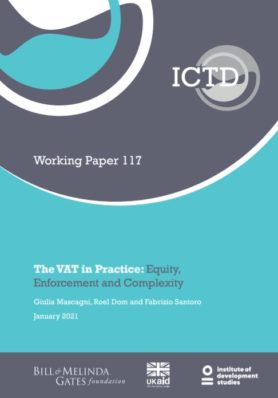Working Paper 117
The value added tax (VAT) is supposed to be a tax on consumption that achieves greater economic efficiency than alternative indirect taxes. It is also meant to facilitate enforcement through the ‘self-enforcing mechanism’ – based on opposed incentives for buyers and sellers, and because of the paper trail it creates. Being a rather sophisticated tax, however, the VAT is complex to administer and costly to comply with, especially in lower-income countries. This paper takes a closer look at how the VAT system functions in practice in Rwanda. Using a mixed-methods approach, which combines qualitative information from focus group discussions with the analysis of administrative and survey data, we document and explain a number of surprising inconsistencies in the filing behaviour of VAT-remitting firms, which lead to suboptimal usage of electronic billing machines, as well as failure to claim legitimate VAT credits. The consequence of these inconsistencies is twofold. It makes it difficult for the Rwanda Revenue Authority to exploit its VAT data to the fullest, and leads to firms, particularly smaller ones, bearing a higher VAT burden than larger ones. There are several explanations for these inconsistencies. They appear to lie in a combination of taxpayer confusion, fear of audit, and constraints in administrative capacity.
